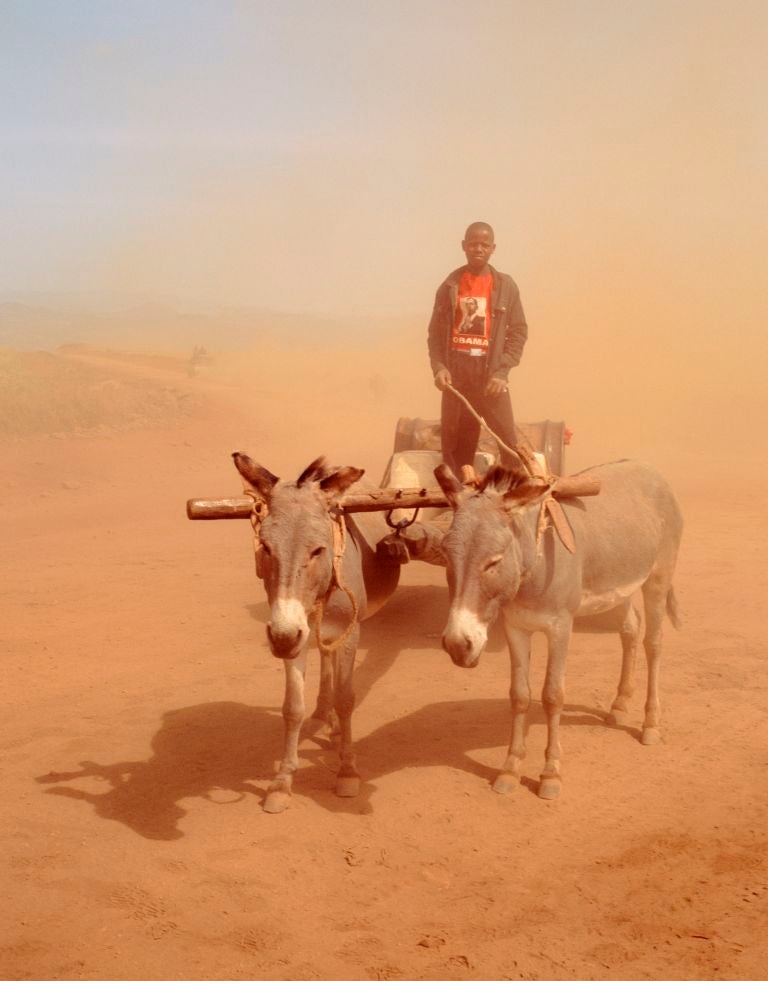
Your support helps us to tell the story
From reproductive rights to climate change to Big Tech, The Independent is on the ground when the story is developing. Whether it's investigating the financials of Elon Musk's pro-Trump PAC or producing our latest documentary, 'The A Word', which shines a light on the American women fighting for reproductive rights, we know how important it is to parse out the facts from the messaging.
At such a critical moment in US history, we need reporters on the ground. Your donation allows us to keep sending journalists to speak to both sides of the story.
The Independent is trusted by Americans across the entire political spectrum. And unlike many other quality news outlets, we choose not to lock Americans out of our reporting and analysis with paywalls. We believe quality journalism should be available to everyone, paid for by those who can afford it.
Your support makes all the difference.Barack Obama’s image has become ubiquitous across Africa. As the race for the White House draws to a close this series of photographs by Harry Hook expresses Africa’s affection for Obama.
‘Who is your father?’ This vitally important question in most parts of rural Africa means Obama (born of a Kenyan father) is seen as an African son. ‘Claimed’ by the continent, Africa’s passion for Obama seems more enduring than mere support for a political candidate.
Never previously exhibited, these photographs were taken in Ethiopia, Uganda, Kenya, Tanzania, Burkino Faso and Mali, and show the face of Obama adorning walls, clothing and jewellery.
Click here or on "View Gallery" for a picture preview
Filmmaker and photographer, Harry Hook, was born and raised in East Africa. While travelling across the continent in recent years Obama’s image, time and time again, presented itself to him in the most remote and unlikely places.
Parents dress their children in Obama shirts and T-shirts, confirming Obama’s position as an inspirational figure, his popularity on the rise in this part of the world. Some of the subjects of Hook’s photographs suggested that the US President is not simply a role model. Instead, wearing Obama’s image holds an almost totemic power for them: although unlikely to ever meet him, they can look up to him and believe that he, in turn, will watch over them.
When Obama entered the White House many pundits anticipated that his influence would cause America’s approach to Africa to be vigorous, transformative, and pro-active. In fact, he has spent just three days and a single night in Africa since becoming President (one day in Eygpt and two days and a night in Ghana, both in 2009), surprising political commentators and strategists.
The expectations of some African governments may have been dashed, but for most rural Africans Obama’s record in Africa is not an issue – the dealings of their own governments with foreign powers is something entirely remote from the reality of their everyday lives.
Obama’s heroic status remains undiminished across rural Africa. For most of the population Obama is, like them, an African, who just happens to hold the most powerful job in the world.
Obama: Africa's Icon at Royal West of England Academy, Bristol until 11 November. Admission FREE
Join our commenting forum
Join thought-provoking conversations, follow other Independent readers and see their replies
Comments